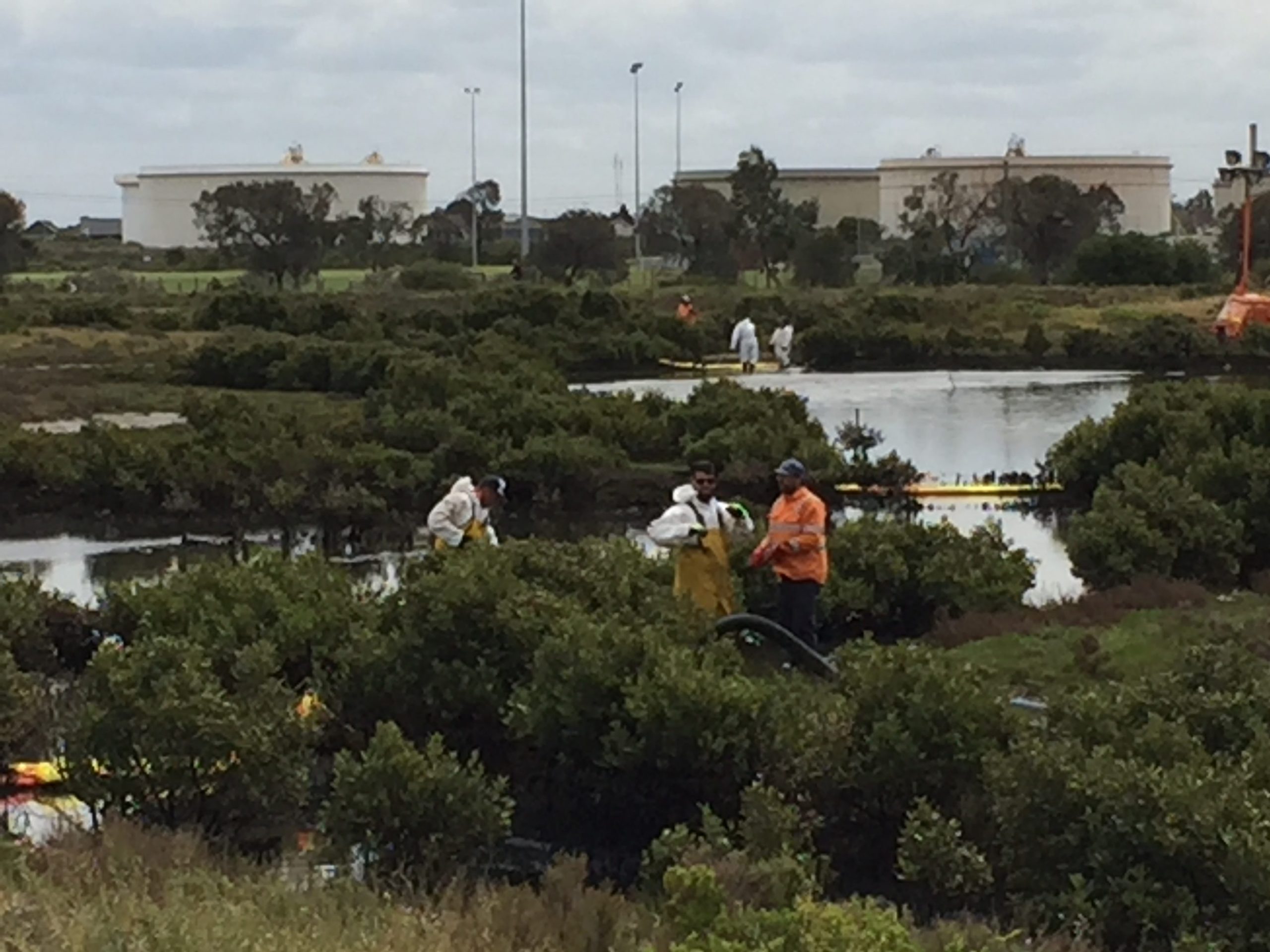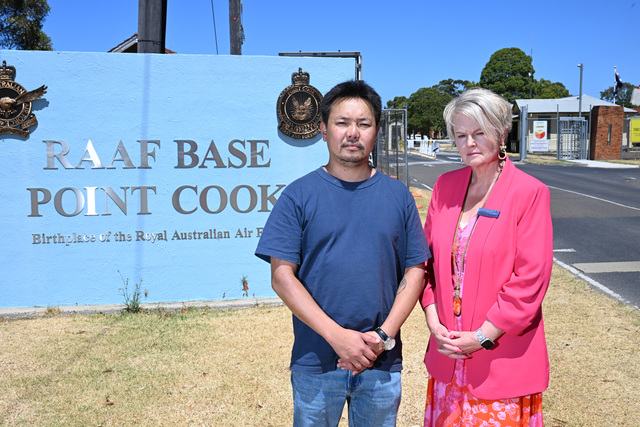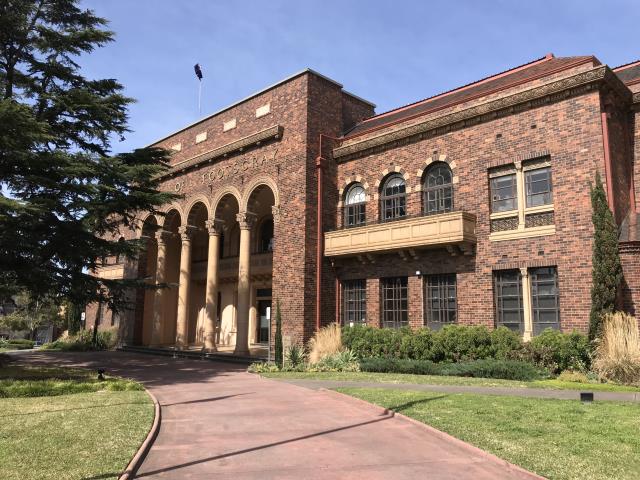Boral Resources has received official orders to clean up the remains of an oil spill in Williamstown waterways this month.
Parks Victoria confirmed the pollution, which started in Paisley-Challis Wetlands at Williamstown, had reached Jawbone Marine Sanctuary in Port Phillip Bay and impacted wildlife.
The Environment Protection Authority has issued a clean up notice detailing actions Boral must take to restore the creek and wetlands to their former condition.
The notice follows an earlier minor works pollution abatement notice EPA issued, requiring the company to close an interceptor pit (a pit to trap pollutants like oil) on its premises as a preventative measure.
Early on, the national supplier of asphalt and other road materials was identified as a potential source of the pollution and had been assisting EPA with the initial clean-up.
Boral must comply with the legally enforceable clean-up notice by following a detailed plan and report to EPA and the other agencies each week on its progress.
People are still being advised to avoid contact with water in the affected waterways.
Signs along the Paisley-Challis Drain warn people not to eat fish from the waterway and not to allow pets to enter or drink the water.
On Monday, the EPA issued a statement saying the pollutant had been successfully contained and plans were in place to deal with any rainfall that may boost flows into the wetlands.
Melbourne Water used an excavator, booms and vacuum trucks to try to stop the pollution spreading, with the Department of Transport’s marine pollution team providing back-up.
The Department of Environment, Land, Water and Planning is assisting with expert advice on the impacts on local bird life.
As reported by Star Weekly, Hobsons Bay Wetlands Centre chair, environmental scientist Marilyn Olliff, photographed the oil spill and a sharp-tailed sandpiper migratory bird with oil in its feathers.
Dr Olliff said the spill could affect many birds in the area, including migratory birds who come from as far as Alaska and Siberia.
Parks Victoria confirmed it had observed a number of birds with some oiling of plumage.
Residents in nearby properties are this week continuing to be advised by the EPA that oil spills can cause strong odours which may impact them.
“These strong odours can cause symptoms such as headaches and eye and nose irritation,” the EPA said in its statement.
“If you are experiencing symptoms, try and avoid the area for a few hours.
“To reduce odours inside your home, keep windows and doors closed.”
Related: Oil spill flows into Port Phillip Bay, wildlife threatened

















